Power up your capabilities and accelerate your work in scientific research, AI development, financial analysis, content creation, medical diagnostics, and more, with AFTERSHOCK GPU Servers. Take on tasks that requires massive parallel processing power, including deep learning, high-performance computing, data analytics, rendering, cryptocurrency mining, video transcoding, medical imaging, and genomics.
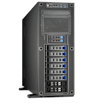

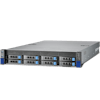
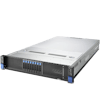
If your Business, Organisation or Institution needs support for enabling seamless collaboration, data management, and scalability. AFTERSHOCK Storage Servers assures that you can store and manage vast amounts of data, providing centralised access and efficient data retrieval; store and manage data such as documents, files, images, videos, and databases.
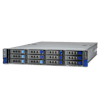
A NAS (Network-Attached Storage) device is a centralised storage solution that connects directly to a network, allowing multiple users and devices to access stored data simultaneously. This facilitates file sharing, data backup, multimedia streaming, and remote access - making them ideal for homes, small businesses, and enterprise environments seeking efficient and accessible storage solutions.

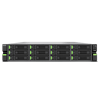
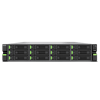
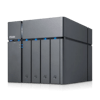
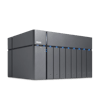
An All-Flash Array (AFA) server is a storage solution that uses flash memory drives (SSDs) instead of traditional hard disk drives (HDDs), offering high speed, low latency, and enhanced reliability. These servers deliver faster data access, increased efficiency, and improved performance for demanding applications like databases, virtual desktops, and analytics workloads. With built-in data reduction technologies, AFAs reduce storage costs and are scalable to accommodate growing data needs. They are particularly valuable in environments where high performance, energy efficiency, and low failure rates are essential, such as enterprise databases, high-performance computing, and data analytics.
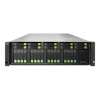
Unified storage servers are versatile storage solutions that combine file-based (NAS) and block-based (SAN) storage into a single platform, supporting multiple protocols like NFS, SMB, iSCSI, and Fibre Channel. This integration simplifies management, reduces costs, and enhances scalability by allowing organizations to handle mixed workloads without needing separate storage systems. Unified storage servers are ideal for environments with diverse data needs, such as virtualization, databases, and file sharing, offering built-in data services like deduplication, snapshots, and replication to optimise storage use and improve data protection.
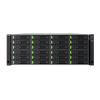
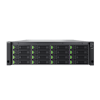
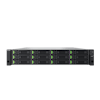





SAN (Storage Area Network) servers are high-performance storage systems that provide block-level access to data over a dedicated, high-speed network, connecting multiple servers to a centralised pool of storage devices. SANs are designed for applications requiring fast, low-latency access, such as databases, virtualization, and transactional applications. They offer scalability, reliability, and centralized management, using protocols like Fibre Channel and iSCSI to deliver rapid data transfer and high availability. SANs are ideal for enterprise environments where performance, data protection, and efficient resource utilisation are essential, making them a preferred choice for critical applications.







